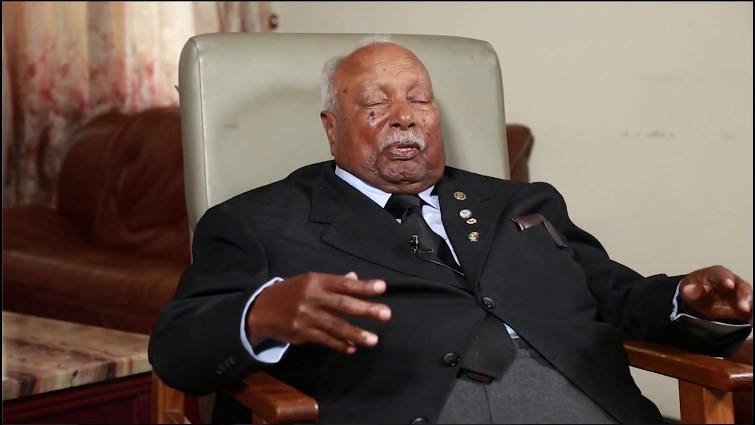Girma’s Political Career: Ethiopia Girma

Girma Wolde-Giorgis, a prominent figure in Ethiopian politics, navigated a complex and dynamic political landscape throughout his career. He held various influential positions, contributing significantly to the country’s development and shaping its political trajectory.
Girma’s Early Political Career
Girma’s political journey began in the 1960s, where he served as a diplomat and held key positions within the Ethiopian government. He gained valuable experience in foreign affairs and international relations, which would later prove instrumental in his political career.
Girma’s Role in the Derg Regime
During the Derg regime, Girma held the position of Minister of Foreign Affairs from 1974 to 1977. This period was marked by significant political and social upheaval in Ethiopia. Girma’s role during this time remains a subject of debate and analysis.
Girma’s Political Career After the Derg Regime
Following the fall of the Derg, Girma continued to serve in various roles within the Ethiopian government. He was appointed as the Chairman of the Ethiopian Red Cross Society in 1991, demonstrating his commitment to humanitarian work. He also served as a member of the Council of Ministers during the transitional period.
Girma’s Tenure as President of Ethiopia
Girma Wolde-Giorgis was elected as the President of Ethiopia in 2001, serving two terms until 2013. His presidency was characterized by a focus on national unity and reconciliation. He actively promoted dialogue and consensus-building, aiming to foster a sense of shared purpose among Ethiopians.
Key Initiatives and Policies
During his presidency, Girma spearheaded several initiatives and policies aimed at promoting economic development, social progress, and democratic reforms. Some of the key areas he focused on include:
- Economic Development: Girma emphasized the importance of attracting foreign investment and promoting sustainable economic growth. He supported initiatives to diversify the Ethiopian economy and enhance its competitiveness in the global market.
- Social Progress: Girma recognized the importance of investing in human capital. He supported programs aimed at improving access to education, healthcare, and social services for all Ethiopians.
- Democratic Reforms: Girma played a crucial role in promoting democratic reforms and strengthening institutions. He encouraged dialogue and consensus-building, aiming to create a more inclusive and participatory political system.
Girma’s Relationships with Other Prominent Figures
Girma’s political career involved interactions with numerous prominent figures, both within Ethiopia and internationally. He established strong relationships with key leaders in the region and beyond, fostering cooperation and understanding. He played a significant role in promoting regional stability and development.
Girma’s Legacy
Girma Wolde-Giorgis left a lasting legacy on Ethiopian politics. He is remembered for his commitment to national unity, his efforts to promote economic development and social progress, and his contributions to fostering a more democratic and inclusive society. His presidency marked a period of relative stability and progress in Ethiopia.
Girma’s Impact on Ethiopian Society

Girma Wolde-Giorgis’s legacy extends beyond his political career, leaving a lasting impact on Ethiopian society. His contributions to Ethiopia’s social and economic development, particularly in the areas of education, healthcare, and infrastructure, have significantly shaped the country’s progress. This section will explore the impact of his policies on various segments of Ethiopian society.
Girma’s Role in Promoting Education, Ethiopia girma
Girma’s commitment to education was evident throughout his career. He recognized the transformative power of education in empowering individuals and fostering societal progress. He actively promoted access to education for all Ethiopians, regardless of their background.
- He championed policies that expanded access to primary and secondary education, increasing enrollment rates and improving literacy levels.
- Girma also prioritized the development of higher education institutions, establishing new universities and expanding existing ones. This investment in higher education equipped Ethiopians with the skills and knowledge necessary for a modern economy.
- He emphasized the importance of technical and vocational education, recognizing its role in developing a skilled workforce and driving economic growth. This resulted in the establishment of new technical and vocational training centers across the country.
Girma’s Efforts to Improve Healthcare
Girma’s dedication to improving healthcare access and quality was another defining aspect of his leadership. He understood the vital role of healthcare in improving the well-being of the Ethiopian people.
- He oversaw the expansion of healthcare infrastructure, building new hospitals, clinics, and health centers in rural and urban areas.
- He implemented policies aimed at strengthening the healthcare workforce, training more doctors, nurses, and other medical professionals. This addressed the shortage of healthcare personnel, particularly in rural areas.
- He introduced initiatives to promote preventive healthcare and disease control, including vaccination programs and public health campaigns.
Girma’s Impact on Infrastructure Development
Girma’s leadership was marked by a strong commitment to infrastructure development. He understood that investing in infrastructure is essential for economic growth and social development.
- He prioritized the expansion of transportation networks, building new roads, railways, and airports. This improved connectivity within Ethiopia and facilitated trade and economic activity.
- He invested in energy infrastructure, expanding hydroelectric power generation and promoting renewable energy sources. This ensured a reliable and sustainable energy supply for businesses and households.
- He supported the development of telecommunications infrastructure, expanding internet access and improving communication networks across the country.
Girma’s Policies and their Impact on Various Segments of Society
Girma’s policies had a profound impact on various segments of Ethiopian society, including:
- Rural Communities: His investment in rural infrastructure, including roads, healthcare facilities, and schools, improved the lives of rural communities. This increased access to essential services, reduced poverty, and empowered rural residents.
- Women and Children: Girma’s commitment to education and healthcare benefited women and children disproportionately. Increased access to education empowered women, while improved healthcare reduced child mortality rates and improved maternal health outcomes.
- The Business Community: Girma’s policies, including infrastructure development and investment in human capital, created a more favorable environment for businesses. This attracted foreign investment and stimulated economic growth, creating new job opportunities.
Girma’s Legacy and Future Significance

Girma Wolde-Giorgis’s legacy extends beyond his time as president of Ethiopia. He left an indelible mark on the nation’s political landscape, fostering a spirit of unity and stability during a turbulent period. His unwavering commitment to democracy and human rights, coupled with his pragmatic approach to governance, continues to influence Ethiopian politics today.
Girma’s Enduring Influence on Ethiopia
Girma’s legacy as a statesman and advocate for peace and reconciliation remains a potent force in Ethiopian politics. He played a pivotal role in navigating the nation through a period of significant political and social change. His leadership style, characterized by consensus-building and respect for diversity, laid the groundwork for a more inclusive and democratic Ethiopia.
- Promoting Unity and Reconciliation: Girma’s presidency was marked by a commitment to national unity and reconciliation. He actively sought to bridge divides and promote understanding among different ethnic groups, fostering a sense of shared identity and purpose. This emphasis on unity and reconciliation continues to resonate in Ethiopia’s political discourse, serving as a guiding principle for future leaders.
- Championing Democracy and Human Rights: Girma’s unwavering commitment to democratic principles and human rights was a defining characteristic of his leadership. He consistently advocated for the protection of fundamental freedoms and the rule of law. His legacy as a champion of democracy continues to inspire advocates for human rights and democratic reforms in Ethiopia.
- Enhancing Ethiopia’s International Standing: Girma’s diplomacy and international engagement significantly enhanced Ethiopia’s standing on the global stage. He cultivated strong relationships with international partners, fostering cooperation in areas such as development, trade, and security. His efforts to build a more robust and engaged international presence continue to shape Ethiopia’s foreign policy today.
Future Impact of Girma’s Ideas and Policies
Girma’s vision for a democratic, prosperous, and united Ethiopia continues to inspire and guide future generations of leaders. His commitment to good governance, economic development, and social justice remains a guiding principle for policymakers. His legacy is a testament to the enduring power of his ideas and policies, which continue to shape Ethiopia’s development trajectory.
- Strengthening Democratic Institutions: Girma’s emphasis on democratic institutions and processes serves as a model for future leaders. His commitment to strengthening democratic institutions, such as the judiciary and parliament, remains a crucial element of Ethiopia’s democratic development.
- Promoting Economic Growth and Development: Girma’s legacy of promoting economic growth and development continues to influence Ethiopia’s economic policies. His commitment to attracting foreign investment, fostering entrepreneurship, and promoting infrastructure development remains a cornerstone of Ethiopia’s economic strategy.
- Advancing Social Justice and Equity: Girma’s legacy is also marked by a commitment to social justice and equity. He advocated for policies that promote equality and opportunity for all Ethiopians, regardless of their background. His legacy serves as a reminder of the importance of addressing social inequalities and promoting inclusivity in Ethiopian society.
Comparison with Other Prominent Ethiopian Leaders
Girma’s leadership style and achievements can be compared to other prominent Ethiopian leaders. For instance, his emphasis on consensus-building and national unity distinguishes him from leaders who favored more centralized and authoritarian approaches. His commitment to democracy and human rights sets him apart from those who prioritized stability over individual freedoms.
- Emperor Haile Selassie I: Girma’s commitment to democracy and human rights contrasts sharply with Emperor Haile Selassie I’s autocratic rule. While Haile Selassie I played a significant role in Ethiopia’s modernization and international recognition, his reign was characterized by limited political freedoms and human rights abuses.
- Mengistu Haile Mariam: Girma’s emphasis on national unity and reconciliation stands in stark contrast to the divisive policies of Mengistu Haile Mariam, who ruled during the Derg regime. Mengistu’s rule was marked by widespread human rights violations, political repression, and ethnic conflict.
- Meles Zenawi: Girma’s commitment to democratic principles and good governance sets him apart from Meles Zenawi, who ruled for two decades. While Zenawi implemented significant economic reforms and led Ethiopia to economic growth, his regime was criticized for its authoritarian tendencies and suppression of dissent.
Ethiopia Girma, a renowned Ethiopian-American architect, is known for his innovative designs that seamlessly blend traditional Ethiopian motifs with modern architectural principles. His work often draws inspiration from the rich cultural heritage of his homeland, incorporating elements like intricate geometric patterns and vibrant colors.
One notable example is his design for the Quincy Hall in Boston, a historic landmark that reflects his ability to create spaces that are both visually stunning and culturally significant. Girma’s architectural philosophy emphasizes the importance of place and community, a philosophy that is evident in his diverse portfolio of projects.
Ethiopia’s Girma Wolde-Giorgis, a prominent figure in the country’s political landscape, has played a significant role in shaping its history. His tenure as President, from 2001 to 2018, witnessed various transformations, including the Girma Fall , a period marked by political unrest and a shift in power dynamics.
This event, while impacting Girma’s presidency, remains a pivotal moment in Ethiopian history, highlighting the complexities of political transitions and the enduring influence of individual figures in shaping national narratives.